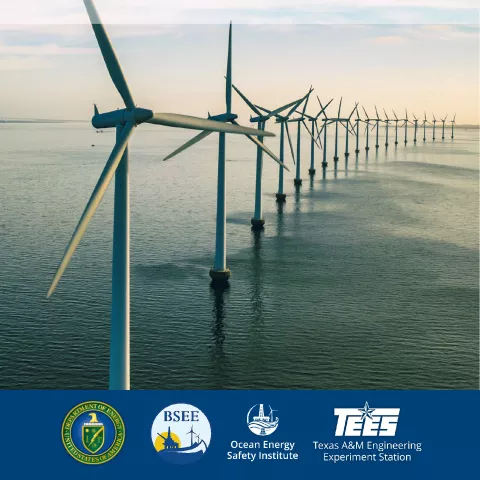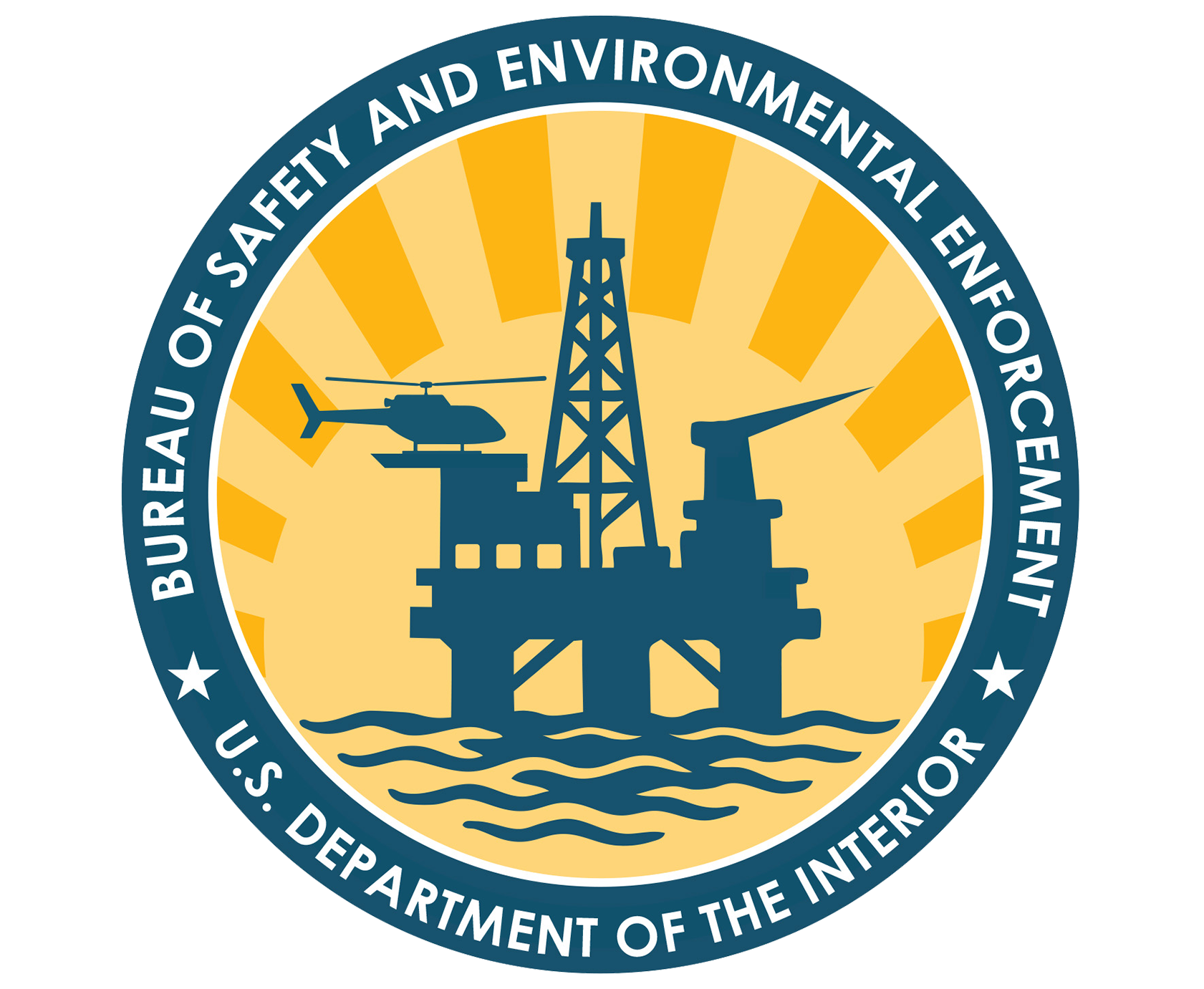
You are viewing ARCHIVED content published online before Jan. 20, 2025. Please note that this content is NOT UPDATED, and links may not work. Additionally, any previously issued diversity, equity, inclusion or gender-related guidance on this webpage should be considered rescinded. For current information, visit News Items | Bureau of Safety and Environmental Enforcement.
Research from the BSEE- and DOE-funded Institute advances worker safety and environmental sustainability of offshore energy resources.
WASHINGTON — The Department of the Interior’s Bureau of Safety and Environmental Enforcement (BSEE) and the U.S. Department of Energy’s (DOE) Office of Energy Efficiency and Renewable Energy and Office of Fossil Energy and Carbon Management applaud today’s announcement from the Ocean Energy Safety Institute (OESI) that it is awarding $2.7 million to fund six wind energy research projects that will help improve the overall efficiency, operation, and safety of offshore wind energy systems.
Organized under an agreement between BSEE, DOE, and the Texas A&M Engineering Experiment Station (TEES), OESI is a world-class program for research and development that brings together industry, national labs, nongovernmental organizations, and academia to support the development of safety, environmental monitoring, and operational improvements related to oil and gas, offshore wind, and marine and hydrokinetic energy technologies. With today’s investment, OESI has funded over $7.7 million in research grants to advance the safety of offshore renewable and traditional energy.
“The research facilitated by OESI helps to ensure offshore energy exploration and production remain safe and environmentally sustainable," said BSEE Director Kevin Sligh. “OESI’s work leverages the knowledge and skills in the traditional energy operational space to the emerging fields of offshore wind and marine energy. These rapidly developing areas within the national energy portfolio are benefitting from OESI’s work.”
“Our oceans are a source of abundant clean power and represent significant opportunities to provide reliable domestic energy for American homes and businesses. However, as we develop offshore wind and marine energy technologies, we also aim to be stewards of our natural environment,” said Jeff Marootian, Principal Deputy Assistant Secretary for DOE’s Office of Energy Efficiency and Renewable Energy. “OESI’s important investments ensure we’re using the best available research to integrate safety and sustainability throughout the lifecycle of offshore renewable energy projects.”
“Today’s efforts by the Ocean Energy Safety Institute to enhance the performance of U.S. offshore energy, whether it be oil and gas safety, environmental monitoring, or ground-breaking technology development, will benefit our country’s energy security and environmental health far into the future,” said Brad Crabtree, Assistant Secretary for DOE’s Office of Fossil Energy and Carbon Management. “The Department of Energy benefits greatly by supporting collaboration through the Institute’s work.”
The wind energy research projects selected for funding will focus on the safe installation, operation, and maintenance of offshore wind energy systems and improving the overall safety of offshore workers. Specifically, the research will help advance technologies that reduce the risk of injuries during personnel transfers, as well as from exposure to other physical hazards. The research will also enhance understanding of site conditions and improve modeling of dynamic loading on turbines. For additional information about the projects selected, see OESI’s wind energy announcement page https://oesi.tamu.edu/wind-energy-awards-announcement/.
The criteria used in the evaluation process are outlined in each request for proposal to ensure transparency and consistency in the selection of research projects.
Additional milestones and funding announced by the OESI in 2023:
The publication of technology roadmaps for the three application areas: oil and gas; marine energy; and offshore wind energy. The purpose of the roadmaps is to address potential gaps in offshore energy research that could impact safety and environmental sustainability, but are not likely to be funded via private industry. To learn more about the OESI roadmaps, see Research - Ocean Energy Safety Institute (tamu.edu).
Funding awarded to four marine energy research projects totaling $1,099,672, Sept. 18, 2023. Marine energy research focusing on leveraging experience from oil & gas and wind energy to enhance the safety, security, and sustainability of marine energy operations. The research will provide marine energy solutions for existing offshore energy operations and advances development toward commercial-scale marine energy operations. For additional information about OESI’s marine energy research, visit https://oesi.tamu.edu/.
Funding awarded to 10 oil and gas research projects totaling $3,885,057, June 8, 2023. Oil and gas energy research focusing on improving offshore worker safety and providing risk-based solutions to prioritize oversight and intervention in the offshore arena, and using predictive indicators to support proactive response methodologies for offshore energy hazard management. This research is focused on reducing both safety and environmental incidents as well as providing the industry tools and solutions to improve design and decision making in the future. For additional information about OESI’s oil & gas research, visit https://oesi.tamu.edu.
ABOUT OESI
Through a five-year project agreement that began May 2021, DOI/BSEE and DOE provide expertise, direction, and oversight of the OESI through a Joint Steering Committee of agency experts in the research areas, but the OESI operates independently of the two federal agencies.
With a budget of up to $40 million over a five-year period, TEES is responsible for managing the OESI, providing input on yearly objectives, facilitating research and development related to three research areas, implementing operational improvements in the areas of offshore drilling safety, and advancing environmental protection, blowout containment, and oil spill prevention and response.
OESI will announce additional requests for proposals in 2024.
For additional information about OESI visit https://oesi.tamu.edu/.
